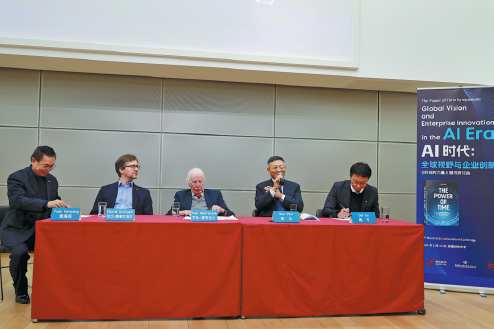China, Japan, S. Korea to bolster trade ties


Amid tariff increases by the United States and growing economic fragmentation worldwide, China, Japan and South Korea — three manufacturing powerhouses that depend heavily on foreign trade — are likely to form closer ties to preserve Asia's economic stability and create a buffer against unilateralism, said trade experts and business leaders on Monday.
The three nations announced on Sunday that they have agreed to accelerate negotiations on their trilateral free trade agreement and enhance cooperation in supply chain management and export controls, according to China's Ministry of Commerce.
During the 13th meeting of economic and trade ministers from the three countries, which took place in Seoul, South Korea, on Sunday, top trade officials reaffirmed their commitment to strengthening collaboration within regional and multilateral frameworks.
Faced with mounting pressure on the global economy, they convened for their first talks in five years, as tensions rise over impending tariff threats from the United States.
After announcing 25 percent tariffs on car and light truck imports from all countries in late March, a decision that will significantly affect Japanese and South Korean automakers, Washington plans to start collecting these tariffs from Thursday.
Lu Hao, a research fellow at the Chinese Academy of Social Sciences' Institute of Japanese Studies, said the close geopolitical and economic ties among China, Japan and South Korea are an objective reality. Efforts by the US to push Japan and South Korea to "de-risk" or decouple from China are unlikely to succeed, given the Northeast Asian economies' deeply intertwined economic ties.
"Recent White House policies have heightened concerns among Washington's Asian allies, particularly Japan and South Korea," said Lu, adding that these two countries should return to a path of strengthening regional cooperation and improving engagement with China in order to cope with US pressure.
The revival of trilateral cooperation, particularly in economic and trade affairs, is a prevailing trend, he added.
Echoing similar views, Zhang Yuyan, a member of Academic Divisions at the Chinese Academy of Social Sciences, noted that in the wake of US tariff hikes, many countries, especially Japan and South Korea, have increasingly come to appreciate the importance of intra-Asian cooperation.
At the meeting in Seoul, the three countries also agreed to deepen collaboration in digital and green economies, enhance local cooperation, and foster a more favorable environment for cross-border business.
Reflecting the growing business confidence in regional cooperation, Tetsuro Homma, executive vice-president of Panasonic Holdings Corp, said the Japanese company will expand production capacity at its electronic materials plant in Shanghai this year, with operations expected to begin in 2027. This follows the company's launch of a semiconductor factory project in Suzhou, Jiangsu province last year.
He said China's leadership in technologies such as artificial intelligence, electric vehicles, solar cells, and other sustainable energy innovations will serve as key drivers of future economic growth.
China and Japan saw their bilateral trade value decline 0.6 percent year-on-year to 324.07 billion yuan ($44.72 billion) in the first two months of 2025, while export and import value between China and South Korea dropped 0.1 percent on a yearly basis to 335.51 trillion yuan, data from the General Administration of Customs showed.
Within the framework of the Regional Comprehensive Economic Partnership, China, Japan and South Korea have already established a set of reciprocal terms and market access commitments, said Yuan Bo, a researcher specializing in foreign trade at the Chinese Academy of International Trade and Economic Cooperation in Beijing.
If the three countries build on this foundation to broaden trilateral free trade cooperation, including in goods and services trade, as well as further market liberalization and reciprocal policy alignment, it will anchor them more firmly in a shared vision of achieving mutual benefit through better regional development, said Yuan.
zhongnan@chinadaily.com.cn




































